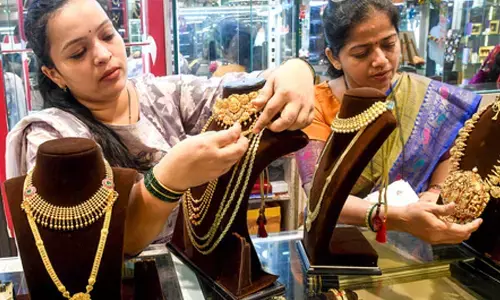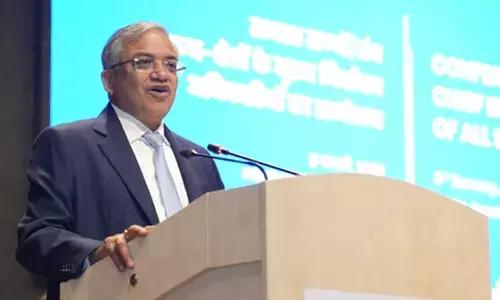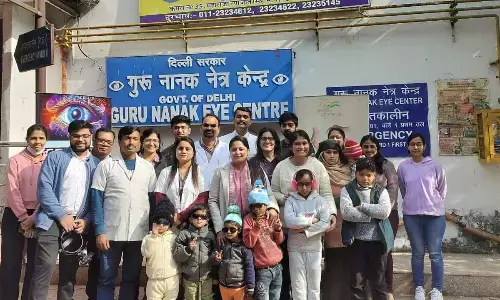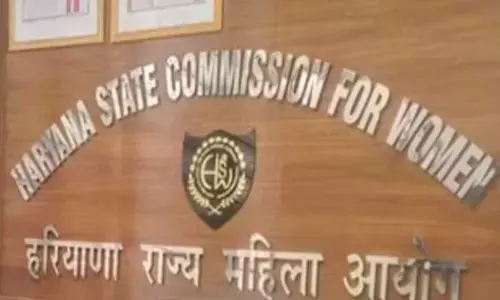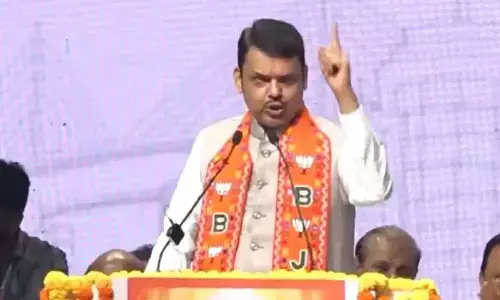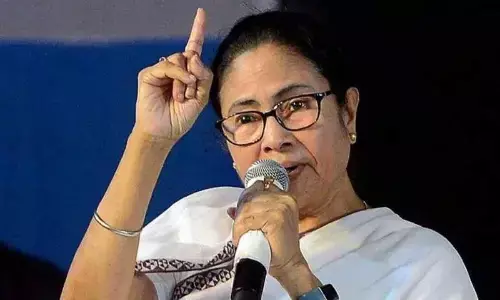India ushers in new era of healthcare in 8 years

With a series of initiatives from the Government of India, the medical and healthcare sector in the country witnessed massive transformational changes during the last eight years.
With a series of initiatives from the Government of India, the medical and healthcare sector in the country witnessed massive transformational changes during the last eight years. The sustained efforts are giving the much-needed fillip to the healthcare infrastructure and other allied sectors in the country.
Leveraging the series of measures, there is a palpable improvement in the medical and health sectors in the country. The government's emphasis on creating a Swasthya Bharath (Healthy India) and Fit India are in tune with its priority to emerge as the self-reliant in terms of medical and healthcare sector.
India's COVID vaccination has scripted a stupendous success story in the world. The infection rate and the consequences would have been unimaginable and horrific, had the country not gone in for its own vaccine development, production, and supply mechanism. It would be impossible for other countries to supply the huge quantum of vaccine doses that our country required in a short span of time.
India not only developed, produced, and administered its own indigenous vaccine, it had also succeeded in supplying the vaccine to around 150 countries across the globe thus saving lakhs of lives. The gigantic scale and huge numbers of vaccine doses vouch for the success story of the country in term of its vaccination drive. As on June 28 this year, more than 100 crore people got the first dose, while more than 91 crore people got the two doses of vaccine administered in our country.
According to the Ministry of Health and Family Welfare, the total number of COVID vaccine doses administered in the country as on June 30th this year is 197.61 crore. The country is marching ahead to soon cross a momentous milestone of administering 200 crore doses of vaccine. Vouching for the immense success of the COVID vaccination in our country and its impact on safeguarding the health of the people, the recent studies published in the Lancet research journal pointed out that over 42 lakh deaths were prevented due to the successful vaccination drive in India.
The vaccination of this gigantic proportion in the country was possible with the allocation of Rs 35,000 crore in the last year's union budget. The estimates were revised up to Rs 39,000 crore at a later stage.
Continuing the same spirit and unrelenting in its mission to immunise all, the government has earmarked a budgetary allocation of Rs 5,000 crore to be spent on vaccination drive mainly aimed at facilitating the vaccination of 15-17 years' age group beneficiaries in the year 2022-23. After facing tough challenges in terms of medical oxygen and PPE kits and testing laboratories, the country has also scripted a similar success story in emerging self-reliant in these areas.
In tune with the government's priority to healthcare sector, the union budget for the year 2022-23 marked the allocation of a massive Rs 86,200 crore for the Ministry of Health and Family Welfare.
Indicating the increased public spending on healthcare in our country, The Economic Survey-2022 pointed out that our country's public expenditure on healthcare is at 2.1 per cent of the GDP in the year 2021-22. This was a marked increase from the previous year (2020-21) which was at 1.8 per cent of the GDP. The increase in public expenditure on healthcare is poised to witness further hike in the years to come highlighting the country's journey towards better healthcare.
Similarly, in order to give a major boost to the healthcare infrastructure, the central government is also planning to offer a credit incentive programme worth Rs 500 billion. This is likely to be a game changer in the healthcare infrastructure of the country.
The two waves of the COVID pandemic have underscored the urgency of going for an overhauling of the medical and health care infrastructure to meet the growing needs and future challenges.
With an objective to make more number of qualified and well-trained doctors available in the country in tune with the projected future demand, the government has increased the number of Under-Graduate medical seats from 51,348 before 2014 to 89,875 seats as on March 2022. More than 90,000 MBBS seats in little over 600 medical colleges are estimated to be filled through the NEET-2022.
There is a 75 per cent increase in the UG medical seats, while there is a 93 per cent increase in PG medical seats, which have increased to 60,202 in March 2022 from the meagre number of 31,185 seats before 2014. There are efforts to increase the number of MBBS seats to one lakh in near future and 1.5 lakh medical UG seats.
Steps are underway to increase the number of medical colleges in the country and the central sponsored scheme to establish, upgrade district/referral hospitals. Under this initiative, the establishment of a total of 157 medical colleges has been approved and from among these a total of 71 new medical colleges have already become functional.
With the goal of setting up a medical college each in every district of the country, the medical colleges are being set up in many uncovered districts in the country.
Under the central sector scheme, the central government has approved the establishment of 22 new All India Institutes of Medical Sciences (AIIMS) and out of these 19 have started offering UG courses.
The super specialty seats are also witnessing a good increase through the special initiative to construct the super specialty blocks in the government medical colleges.
The initiatives have resulted in achieving the doctor-population ratio of 1:834 (March 2022) in the country and it is aimed at to further better the doctor-population ratio in the country to make more doctors available for the people.
The establishment of 8,700 generic medicine shops has effectively saved an estimated Rs 15,000 crore of people's money in the country.
As healthcare sector is one of the largest sectors in our country, it is imperative that there is an increased focus to improve its standards by leaps and bounds. The goal is to make the healthcare accessible and affordable, while the emphasis is on the quality.
The sustained initiatives have resulted in the creation of around 2.7 million new jobs in the sector between 2017 and 2022. The healthcare sector employs at least five million people in the country.
Efforts in other areas of the healthcare also witnessed the establishment of 1.18 lakh health and wellness centres across the country and till now around 22 crore digital health cards were given. In another historic move, the National Digital Health Mission was launched with an intended aim to build the foundation essential to back the digital healthcare infrastructure. It also aims to digitally reconcile the gap among various stakeholders involved in the country's healthcare.
The initiatives in the pharma sector have contributed to the country's goal to emerge as the pharma capital of the world, while the schemes like the Ayushman Bharath have already benefited crores of people in the country.
Ayushman Bharat Digital Mission aims to develop and support digital health infrastructure in the country. Leveraging digital technologies, the government has also launched the eSanjeevani scheme to offer digitally-enabled consultation with the medical professionals and it proved immensely useful and effective during the pandemic time.
It is likely that the country will soon emerge as one of the top 5 countries for medical tourism with Heal India campaign. Under the visionary leadership of Hon'ble Prime Minister Shri Narendra Modi, the healthcare sector is poised to witness further transformation thus leading to a robust healthcare system in the country.
(Author is Governor of Telangana State and Lt. Governor of Puducherry. Views are personal)








